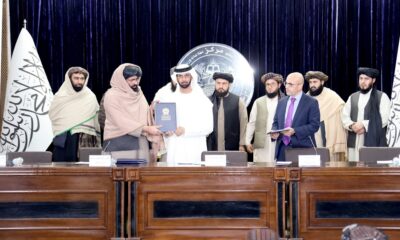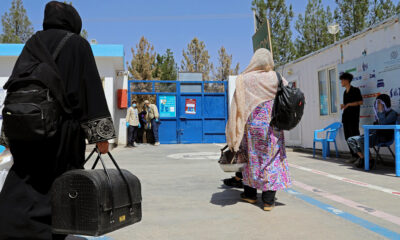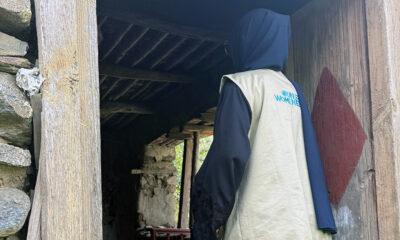Latest News
Poverty is a multi-dimensional and historic issue in Afghanistan: Ghani
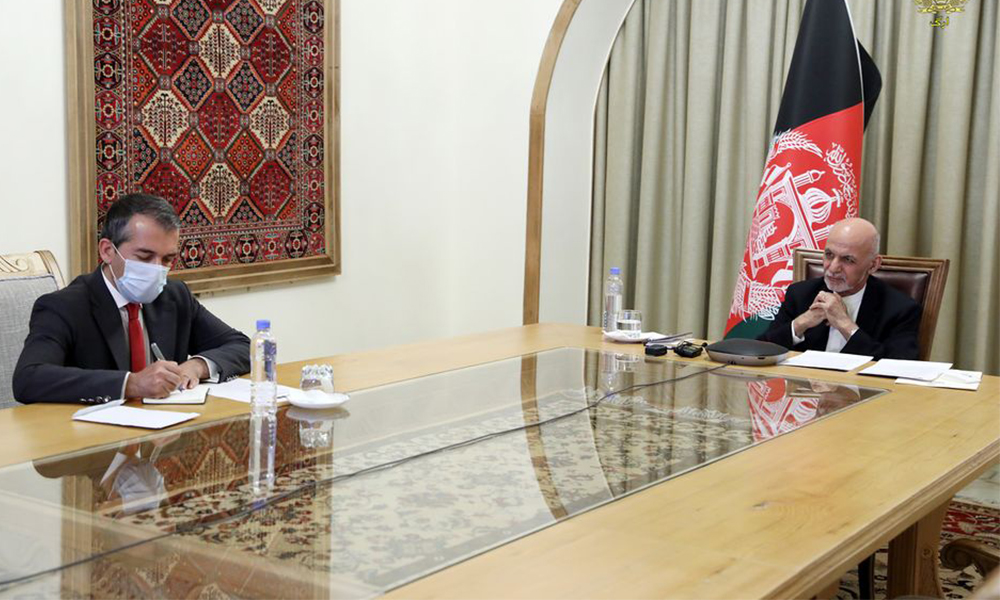
President Ghani says that the Covid-19 pandemic has plunged the world into turmoil, uncertainty, and unprecedented risk.
Addressing a side event – Poverty at the Cross Road: Using leadership and the multidimensional poverty index to build back better – on the sideline of the 75th session of United Nation General Assembly on Thursday, Ghani said that the pandemic has exposed existing vulnerabilities and shortcomings in our systems and normal modes of conduct.
“It wreaked havoc on lives and livelihoods, particularly for the poor and disadvantaged. It posed an unparalleled challenge to our scientific and technological capabilities, and an existential threat to our medical professionals who have been on the front lines of a war for which we were not prepared,” Ghani added.
“The virus arrived in Afghanistan at the end of February in Herat province, on the border with Iran. The virus peaked in June with an infection rate of 76%. As of September 23, we had recorded 1,446 deaths from the virus. Today, with the virus on the decline, the infection rate is fluctuating daily between 6% and 25%.”
Ghani stated that poverty is one of the most pervasive and complex problems the Afghan people face today and the COVID-19 pandemic” made that even worse for many people.”
He added that the most pressing issue facing people living in poverty is food insecurity.
“In February, it looked challenging because country after country was closing its borders and its economies. We were fortunate, however, to secure the full cooperation of our central Asian neighbors to keep the supply chains functioning.”
Ghani highlighted that poverty is a multi-dimensional and historic issue in Afghanistan. He said it certainly did not start with COVID-19, “so our policy response must also be multi-faceted and must also look far beyond the pandemic.”
President suggests the following priorities for responding to poverty in the country:
First, we need to reach the poor as directly as possible. The Citizen’s Charter is the vehicle of our national community development programs, including the implementation of the National Meal Program. The Citizen’s Charter program is a network of elected community councils in all 34 provinces, where 50% of council members are women.
We are determined to complete the issuance of electronic IDs to every citizen of the country so we can increase their access to mobile money. The goal is that within a year to 18 months, we will be able to reach the poor directly.
Second, we have to enhance our citizen’s assets. The key to this is increasing the productivity of land, labor, and water.
Third, we must align the goals of the market building, state-building, and nation-building. The unifying element here is investing in education, particularly girls’ education and the generation that was denied an education because of 40 years of conflict. Hence the need for a human capital strategy that is tailored to specific contexts.
Fourth, we must utilize our immense natural wealth, ranging from water, sun, and wind, for the generation of renewable energy, and we must tap into the equitable and efficient utilization of our estimated 1 trillion dollars worth of mineral wealth.
Fifth and most importantly, we have to make peace and continue to build peace. We are a country in conflict, losing hundreds of our people every week. Reaching an inclusive peace is the fundamental step in addressing the far-reaching roots of poverty in Afghanistan. The pain inflicted on Afghan society has left scars on each of us as individuals, and on our nation’s collective consciousness.
MPI’s utility lies both in providing a solid basis for policy formation and monitoring of policy implementation. We have, therefore, decided that our National Statistics and Information Authority should use and update it regularly.
Latest News
Syria’s President challenges West’s counter-terrorism claims in Afghanistan and Iraq

Syrian President Ahmed al-Sharaa has stated that “the majority of those killed in the wars in Afghanistan and Iraq were innocent civilians.”
Speaking to CNN’s Christiane Amanpour on Saturday during the Newsmaker Interview at the Doha Forum, al-Sharaa said: “In every war in the region—whether in Iraq or Afghanistan—we saw that most of the casualties were civilians, yet many of them were labeled as terrorists. The real criminals are those who call others terrorists.”
He also commented on the situation in Syria, asserting that the Assad regime has killed more than one million people over the past 14 years and that nearly 250,000 individuals remain missing. According to al-Sharaa, the prolonged conflict has displaced more than 14 million Syrians.
He added that the difficult experiences of regional wars over the past 25 years have led people to “better understand the true meaning of the word ‘terrorist’ and who truly deserves such a label.”
Western forces fought in Afghanistan for two decades under the banner of counter-terrorism, a period during which tens of thousands of civilians were killed.
Meanwhile, four years after the Islamic Emirate’s return to power, the international community continues to express concern about potential terrorist threats from Afghan territory, while the Islamic Emirate maintains that Afghan soil will not be used to threaten any country.
Latest News
EU warns: Afghan women facing heightened risks need urgent protection
The EU reiterated its commitment to increasing support for Afghan women in dire circumstances, including improved access to protection services, legal aid, and emergency assistance.
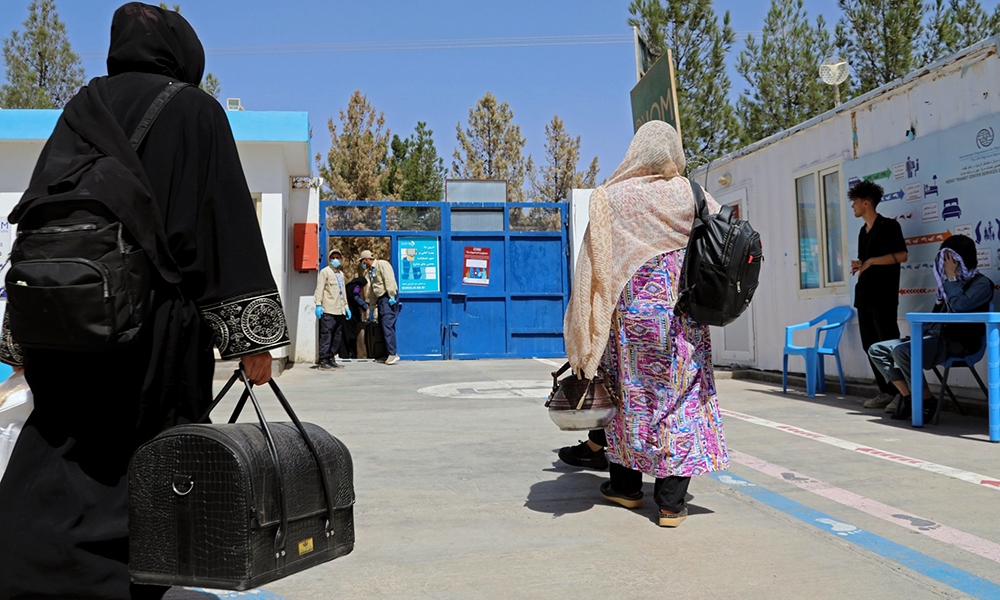
The European Union has issued a renewed alert that Afghan women are becoming increasingly vulnerable amid migration, internal displacement, and ongoing return efforts, calling for swift measures to uphold their rights and dignity.
In a statement released during the 16 Days of Activism Against Gender-Based Violence campaign, the EU emphasized that combating violence against women and ensuring their safety in times of crisis remains a core priority.
The EU mission in Afghanistan noted that women—particularly those living in remote or conflict-affected regions—face elevated threats of exploitation, abuse, and limited access to essential services.
“Ending violence, preserving dignity, and supporting women in times of crisis are central to our efforts. We prioritize the needs of the most vulnerable women in all our humanitarian and protection programs,” the statement said.
The EU reiterated its commitment to increasing support for Afghan women in dire circumstances, including improved access to protection services, legal aid, and emergency assistance.
As humanitarian needs continue to grow nationwide, the EU urged all parties to ensure Afghan women receive timely support and can live free from violence and discrimination.
Latest News
Three months on, Afghan women UN staff still barred from entering offices nationwide
The UN warns that the longer the restrictions persist, the greater the threat to life-saving services across the country.
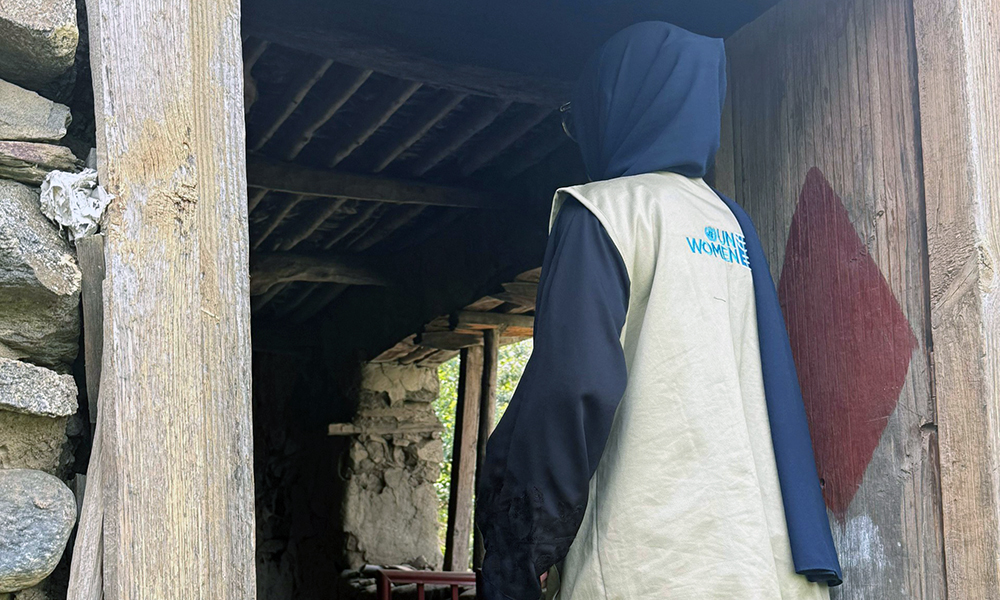
It has now been three months since Afghanistan’s authorities imposed a nationwide ban preventing Afghan women staff and contractors from entering United Nations premises — a restriction the UN says continues to endanger critical humanitarian operations.
Despite being unable to access UN offices for 91 days, Afghan women personnel have continued their work remotely and within communities, delivering essential assistance to millions of people. Their efforts have supported families affected by recent earthquakes in eastern and northern Afghanistan, helped thousands of returnees arriving from Pakistan and Iran, and ensured vulnerable communities continue to receive food, clean water, healthcare, shelter, livelihood support, and climate-resilience assistance.
The UN warns that the longer the restrictions persist, the greater the threat to life-saving services across the country.
“Afghan women are indispensable to the United Nations’ work in Afghanistan,” the statement said, noting that women staff are essential to safely reaching Afghan women and girls and providing culturally appropriate support. “Assistance must be delivered by women, to women.”
The UN reiterated its strong opposition to the ban, calling it a violation of the organisation’s founding principles on equality and human rights, and stressing that it undermines its ability to fulfil its mandate in Afghanistan.
In response to the ongoing restrictions, UN agencies, funds and programmes have implemented additional interim operational adjustments and continue to evaluate feasible ways to sustain their principled humanitarian activities.
The United Nations again urged the Islamic Emirate to reverse the ban and ensure the safe, unrestricted access of Afghan women staff and contractors to UN offices and field locations — a necessary step, it said, to ensure aid reaches the women and girls who need it most.
-
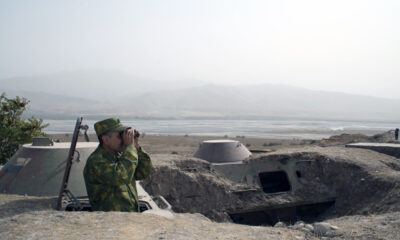
 Latest News4 days ago
Latest News4 days agoSituation along Afghan-Tajik border “not stable,” says Dushanbe
-

 Latest News4 days ago
Latest News4 days agoNew meeting between Afghanistan and Pakistan held in Saudi Arabia
-

 International Sports5 days ago
International Sports5 days agoILT20: Desert Vipers defeat Dubai Capitals as new season opens
-
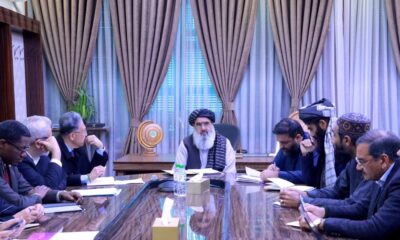
 Health4 days ago
Health4 days agoHealth ministry holds meeting with envoys of international organizations in Kabul
-

 Latest News4 days ago
Latest News4 days ago1.5 million Afghans living with serious disabilities
-

 Business2 days ago
Business2 days agoAriana Afghan Airlines boost air trade with arrival of new cargo aircraft
-

 Latest News4 days ago
Latest News4 days agoMuttaqi highlights IEA’s restraint as tensions rise with Pakistan
-
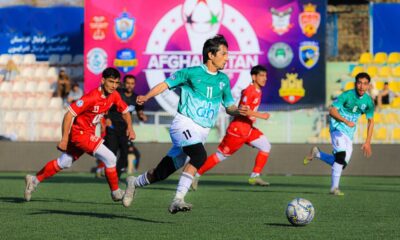
 Sport4 days ago
Sport4 days agoACL: Sorkh Poshan Khafi 6–0 Istiqlal Kabul; Sarafan Herat, Sarsabz Yashlar draw 0–0


